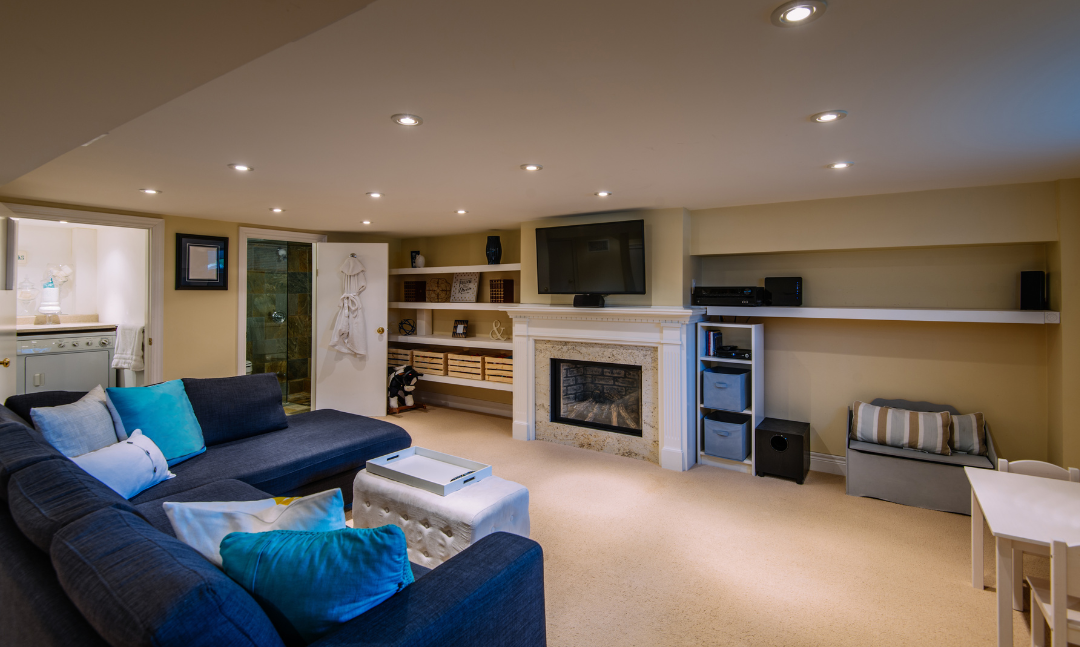
Basement apartment renovations and rentals have become more common these days; however, it’s important to remember all rentals aren’t created equal.
Renters should be aware of laws and regulations to make sure they’re getting a livable space that’s safe, to code and won’t cause them headaches in the future. As Sacha Clarke, REALTOR® and sales representative with Century 21 Percy Fulton Ltd. emphasizes, “you want to look for a good, legal basement apartment.” She shares some of the basics to consider when looking for a basement apartment.

What constitutes a basement apartment?
Separate from the living spaces above them, basement apartments can often have more square footage than standard apartments—of course, depending on the unit. Basement apartments can also have an easier renting process as it’s up to the discretion of the owner, rather than a building or property manager’s laid out application process.
As a general rule, provincial regulations and city bylaws typically stipulate the minimum standards that qualify basement apartments as legal. Differing from province to province, mandates typically specify the number of exits required, window size, the minimum ceiling height, unit size, access to utilities, and compliance with fire safety and electrical safety regulations. These regulations are why it’s important to work with a REALTOR® when looking for a place to rent, as they’ll be able to tell you if all the necessary requirements are being met.
For example, in Quebec, regulations are based on the apartment’s location and the accessibility of an unobstructed (free from anti-intrusion bars) egress window that’s large enough for both an adult and child to climb through, should an alternative means of escape be required. Whereas in Ontario, where a basement apartment is legally referred to as a “secondary unit”, windows must equate to at least 5% of the living floor area and 2.5% of the bedroom floor area.
There are also multiple codes at varying levels that need to be met in order for a basement apartment to be considered legal. Again, taking Ontario and Quebec as examples, Ontario-based apartment rentals have to adhere to the Ontario Building Code standards, as well as Fire Code Standards. Similarly, basement units in Quebec are obliged to meet what’s outlined in the Régie du bâtiment du Québec’s standards.
It goes without saying, local regulations should be checked, as municipalities have the power to permit or prohibit basement apartments in their zoning code.
 Image by Point3D Commercial Imaging on Unsplash
Image by Point3D Commercial Imaging on UnsplashWhat should renters consider when looking for a basement apartment?
As well as what’s listed above, there are some other questions potential renters should be asking when looking at a basement apartment.
“Is there a working smoke detector, carbon monoxide detector, and fire extinguisher?” Sacha Clarke suggests as some things to ask. “Remember, you’re living below someone, so think about your lifestyle and who will be living upstairs. Are you okay if it’s a family with children? Do you work from home? Do you work the night shift and need your sleep during the day?”
There are also two types of basement apartments to consider in Canada. Determined by how and where their exits open and are located, walkout basements—which open directly to the street level or a backyard—are one option, while completely or partially underground basements with stairs leading down to a private exit are another. With a walkout basement apartment, you’ll typically have your own entrance, whereas in a completely or partially underground unit you may need to go through a shared entrance.
An additional point for consideration is whether a full basement or partial basement will work best for you. Full basements are generally the same size as the main level and, as implied by the name, partial basements tend to be smaller. If it’s just you, maybe a partial basement will be fine. But if you’re looking for a space that accommodates your pets, for example, it might not meet your needs.
It’s also worth noting here that contrary to popular belief, basement apartments can be bright and spacious!

How can a REALTOR® help when renting?
There are many benefits to enlisting the help of a REALTOR® when looking for a rental unit. From a protection perspective, teaming up with a REALTOR® means renters will be afforded the same level of assurance as a buyer or seller.
In terms of time-saving, REALTORS® can help whittle down the potential hours spent sifting through listings, booking viewings, and travelling to and from different locations. REALTORS® also have in-depth knowledge of the local market so renters stand a better chance of securing the best deal, not to mention they’re able to provide specifics about neighbourhoods of interest. Plus, your REALTOR® is in the know about all the documentation needed to be signed, sealed, and delivered to secure a unit.
As a renter, it’s incredibly important to do your due diligence, but when it comes to renting any apartment, basement apartments have added considerations you’ll want to keep in mind.
Courtesy: realtor.ca
Posted by Infinity Admin on
Leave A Comment